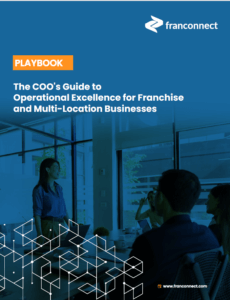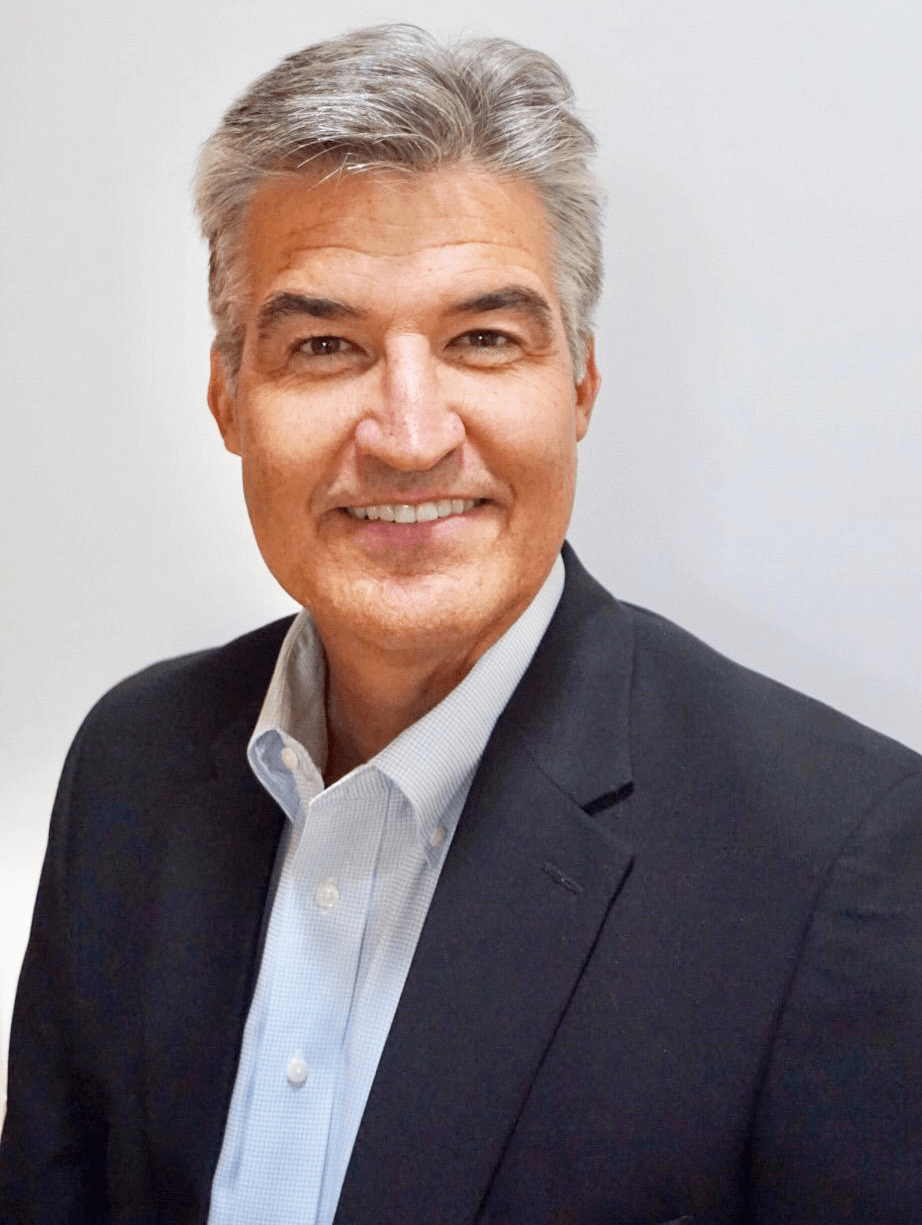Written by Guest Writer Keith Gerson, CFE – President & CEO of Gerson Advisory Services
When I first started franchising in the early ’70s, we didn’t even have fax machines, let alone the tech we’re using today. I remember lugging around a briefcase full of paper reports to every franchisee visit. Now, as President and CEO of Gerson Advisory Services and former President of Franchise Operations for FranConnect, I’m watching AI revolutionize the franchise industry. It’s been quite a journey, and I’ve got a few thoughts on where we’re headed next.
The CFXO: More Than Just Another Fancy Title
Let me tell you about a conversation I had last month with Scott, a franchisor client of mine. He was frustrated because his top-performing franchisee was threatening to leave the system. “Keith,” he said, “I don’t get it. Their numbers are great, but they’re unhappy. What am I missing?”
This is exactly why I’ve been pushing for the role of Chief Franchise Experience Officer (CFXO). It’s not just another C-suite title to hand out at the company holiday party. The CFXO is your franchisee happiness guru, your system’s empathy engine.
In Scott’s case, a CFXO would’ve spotted the issue long before it reached boiling point. They would’ve noticed that while this franchisee’s numbers were stellar, they hadn’t received meaningful support or recognition in months. Sometimes, it’s not about the numbers – it’s about feeling valued.
From Consultant to Coach: A New Breed of Support
If you’ve been around long enough, you’ll remember the old days when the Franchise Business Consultant’s job was basically to show up, check some boxes, and move on. Thankfully, those days are over.
I was at a franchise conference recently where I heard a franchisee say, “I don’t need big brother telling me to ‘increase sales.’ I need someone who can help me figure out how.” That’s stuck with me because it perfectly captures the shift we need to make.
We’re moving towards what I call Franchise Success Coaches (FSCs). These aren’t just consultants; they’re part business guru, part psychologist, and part cheerleader. They need to be able to dig into the numbers, but also to be able to read between the lines of what a franchisee is really saying.
I’ve seen this work wonders. A client of mine implemented this approach last year. Their customer satisfaction scores have gone up 22% since then. Why? Their FSCs aren’t just looking at sales figures; they’re coaching on everything from staff morale to local marketing strategies.
Tiered Support: Because One Size Fits None
Here’s a hard truth I’ve learned: a franchisee who’s been in business for 10 years needs very different support than someone who’s just opened their doors. Sounds obvious, right? You’d be surprised how many systems still use a one-size-fits-all approach.
I’m betting that many of you have a long-term franchisee who has been in the system for many years and who is consistently a top performer. But when you sat down with him, he was considering leaving. Why? He said, “I’m tired of sitting through the same basic training sessions year after year. I need something more.”
I’ve had those conversations over the years, and that’s when the idea of tiered support really crystallized for me. Now, I advocate for systems where new franchisees get intensive, hands-on support while veterans of your system get advanced strategies and peer networking opportunities. It’s not about less support for experienced franchisees – it’s about different support.
Real-Time Data: The Good, The Bad, and The Game-Changing
Let me take you back to 1991. I was working with a specialty food franchise system, and we had just installed our first real-time POS system. I remember standing in a franchise location, watching those sales figures roll in live for the first time. It was like magic.
Fast-forward to today and the data we have access to is mind-boggling. But here’s the kicker—data alone isn’t enough. I’ve seen franchisors drown their franchisees in numbers without providing any real insights.
The game-changer is using this data to have meaningful conversations. One of my clients was able to spot a trend in negative reviews about the speed of service and worked with franchisees to make immediate improvements. Result? A 15% jump in positive reviews in just three months.
Revolutionizing Franchise Operations with Playbooks.
Playbooks are essential in helping to create stronger, more resilient franchise systems by replicating best practices with unprecedented speed and precision. For franchisors looking to drive consistent performance, this tool is a game-changer. The key is that you’re not just collecting data – you’re using it to drive action. It’s not just about making corporate jobs easier; it’s about giving franchisees the tools and insights they need to succeed.
I didn’t really have to gaze long into my crystal ball, as what I initially thought were future capabilities exist today. FranConnect, I’ve found, has the best playbooks in the business when it comes to franchise operations. They have developed the ability to transform how we use real-time data to drive improvements across franchise systems.
Playbooks can turn data into immediate action. Imagine a restaurant franchise where, if a location’s cleanliness scores drop below a certain threshold, the system automatically assigns a detailed cleaning and maintenance playbook to that franchisee. It’s immediate, targeted support exactly when and where it’s needed.
Playbooks can be created for any performance indicator – customer satisfaction, upselling, you name it. It’s like having your best performers mentor every location, but automated and scalable.
AI and Machine Learning: The New Frontier
Now, I’ll admit that when I first heard about AI in franchising, I was skeptical. I had concerns over data privacy, content ownership, “hallucinations,” ethical concerns, a lack of human touch, etc. But I’ve come around in a big way.
Last year, I heard of a franchised B2B concept that implemented an AI system to generate performance improvement playbooks. The system analyzed data from across their 500 locations and created customized strategies for each location.
The results were impressive, but what really sold me was a conversation I had with their CEO. “For the first time,” he told me, “I feel like the advice we are giving is truly tailored to our franchisee’s locations, not just generic one-size-fits-all solutions.”
The Hybrid Model: Balancing High-Tech and High-Touch
The pandemic forced us all to go virtual, and let me tell you, it wasn’t pretty at first. A franchisor I spoke with at an IFA event told me about one video call where a franchisee accidentally left their mic on while making some colorful comments about corporate. Not their finest hour.
But we learned, we adapted, and now I’m convinced that a hybrid model is the way forward. There’s still no substitute for sitting across from your franchisee, looking them in the eye, and shaking their hand. But the efficiency of virtual check-ins? That’s here to stay.
One approach for consideration is bi-annual in-person visits, with bi-weekly virtual calls. An example could be to deliver in-person visits in January and July, followed by virtual calls every two weeks (26 calls per year), and an option for additional ad-hoc virtual calls as needed.
Another approach could consist of an annual in-person visit (reserved for annual strategic planning and critical hands-on support). These are offset by quarterly extended virtual sessions (2-3 hours) for in-depth reviews and bi-weekly brief virtual check-ins (15-30 minutes for quick updates). It’s recommended that one in-person visit be scheduled in the first quarter for new franchisees.
I’ve also seen systems that offer a flexible system based on each franchisee’s performance.
- High-performing franchisees: Annual in-person visit, with bi-weekly virtual calls.
- Average-performing franchisees: Semi-annual in-person visits offset with bi-weekly. virtual calls.
- Underperforming franchisees: Quarterly in-person visits with weekly calls.
- Additional ad-hoc virtual calls can be scheduled as needed for urgent matters or specific concerns.
Looking Ahead: The Only Constant is Change
As I look back on my five decades in franchising, one thing is clear—this industry never stops evolving. The challenges we face today are different from those we faced in the ’80s, ’90s, or even last year. However, the core of what we do remains the same: supporting franchisees in building successful businesses responsibly.
The future of franchise operations is about embracing technology without losing the human touch. It’s about using data to inform decisions but not letting numbers overshadow relationships. It’s about providing tailored support that evolves as our franchisees grow.
Is it going to be easy? Not at all. But in my experience, the most rewarding things rarely are. As we navigate this new frontier, let’s remember why we got into franchising in the first place – to help people achieve their dreams of business ownership.
Here’s to the future of franchising. It’s going to be one heck of a ride!





 Ian Walsh
Ian Walsh








